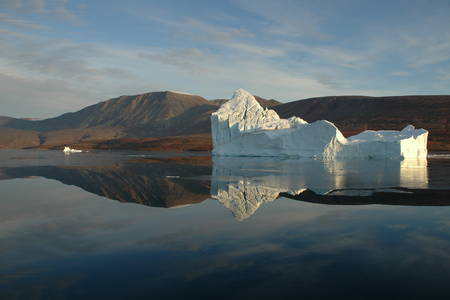Changing Minds NOT the Climate

©Morten T. Leth
Melting ice caps in North-East Greenland Biosphere Reserve
Together with its World Network on Biosphere Reserves (WNBR), the UNESCO Man and the Biosphere (MAB) Programme functions as a Global Observatory for Climate Change Mitigation and Adaptation. As such, it adds value to the fight against climate change by promoting integrated monitoring, multidisciplinary approaches and participatory activities supporting climate change management and for field learning on climate change impacts and related solutions.
Its work engages with the 2030 Agenda for Sustainable Development and addresses challenges linked to scientific, environmental, societal and development issues in diverse ecosystems, ranging from mountain regions to tropical forests, drylands, urban environments and marine, coastal and island areas.
MAB combines the natural and social sciences, economics and education with a view to improving human livelihoods and safeguarding natural and managed ecosystems. MAB contributes to the fight against climate change and its negative impacts by promoting integrated, multidisciplinary, participatory approaches and networking within and among biosphere reserves on climate change mitigation and adaptation.
As the Paris climate agreement enters into force on 4 November 2016, the next Conference of the Parties to the United Nations Framework Convention on Climate Change (COP23) will place an emphasis on vulnerable nations, including Small Island Developing States (SIDS), under the presidency of Fiji. It is taking place in Bonn, Germany, on 06 to 17 November 2017.
COP23 will serve to develop a full set of operational guidelines to help government and non-government actors alike meet the goals of the Paris Agreement, to be finalized in 2018. As part of the overall United Nations system, UNESCO’s observer presence at the COPs is intended to provide information and technical resources about its work on climate change. The UNESCO pavilion in the “Bonn Zone” of the COP venues provides an opportunity to engage with different stakeholders to collectively address climate change.


